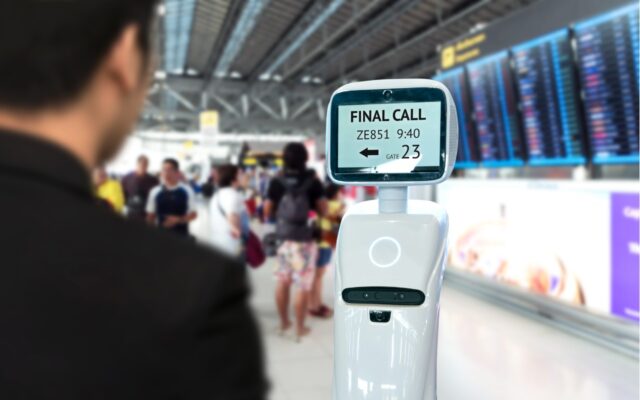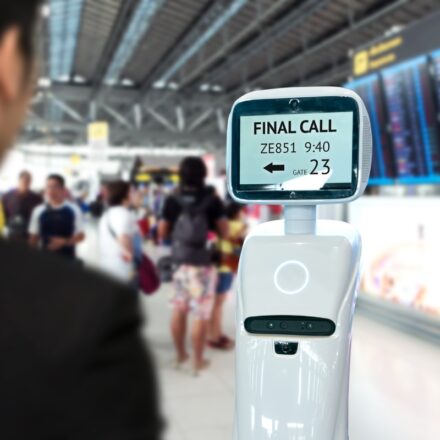Transportation is fundamental to economic growth and quality of life. Recently, the industry has experienced a data explosion. With the increase in camera systems and new breakthroughs in artificial intelligence, video analytics is making transportation safer, smarter and more cost-effective, redefining the business of traveling.
The aviation industry is no stranger to this phenomenon. Frequent flyer miles and preferred seat selection have become mere baselines. The demand for safe, secure and contactless travel is just as important, if not more so. To effectively satisfy this demand, it has become imperative to collect and analyze massive amounts of real-time data and traveler interactions to better understand and anticipate passenger flows, passenger needs and optimal operating environments. Airlines must pull together these disparate sources and data formats into a cohesive solution that smoothens the travel flow from one end to the other, removing as many operational difficulties as possible from the process.
Computer vision has the potential to help organizations in the aviation industry turn data into actionable insights. However, operational and design complexities make it hard for them to determine the workflows required to achieve their desired business outcomes. That is where the award-winning Dell Validated Design Solution for Computer Vision comes in. It helps modernize, consolidate and streamline your organizational deployment and management process. It combines validated workloads on a hyper-converged infrastructure with virtualized GPU allocation for video analytics in an industry-specific, software-defined, scalable architecture.
Organizations across the globe are turning to Al-powered computer vision solutions to empower a safer, more engaging human experience. Actionable intelligence from these integrated video systems is transforming businesses, resulting in new value-add features impacting people’s experience, operational efficiencies, sustainability, improved security, new revenue streams and advanced safety measures.
Outcome-based Innovation
Having engaged with hundreds of transportation customers across the globe, experts at Dell Technologies have discovered the outcomes on which these customers are focused fall into just a few major categories.
Improving Passenger Safety
By having computer vision tools that recognize people, objects or certain behaviors, we can help derive real-time situational awareness to shorten response times to improve overall facility safety. Use case examples include behavioral analysis, enhanced awareness and risk management.
Enhancing People Experience
Customer loyalty is now earned not just by on-time departures and travel perks, but also by the demand for safe, secure, efficient and contactless travel. By leveraging AI-enabled computer vision tools, organizations can better forecast staffing, reduce queuing, enable wayfinding and make effective investment decisions to improve the passenger curb-to-gate experience. Use case examples include flow management, forecasting and automated monitoring.
Achieving Operational Efficiencies
By aggregating video data over longer periods of time, airports can leverage analytics to uncover valuable business intelligence across multiple areas to manage increased capacity. Additionally, predictive maintenance models can empower organizations to anticipate optimal system performance to eliminate costs incurred by possible equipment failure. Use case examples include business intelligence, predictive maintenance, and utility and asset management.
Improving Sustainability and Decreasing Environmental Footprint
Incorporating data from cameras and IoT sensors to monitor power usage, carbon levels, and refuse and recycling bins to take proactive action helps minimize the environmental impact. Use case examples include waste management, de-icing optimization and predictive asset maintenance.
Maximizing Revenue
With computer vision infrastructure, transportation hubs can facilitate passenger flow throughout the facility more efficiently to allow them more time to shop and dine, thereby optimizing retail avenues. Use case examples include taxi flow management and retail space optimization.
Dell Validated Design Solutions for Computer Vision enable organizations to achieve these desired outcomes that directly impact the bottom line.
Download the solution brief and e-book to learn more about how these solutions can help usher in the age of smart airports. For a more detailed look into the technical implementation of these solutions, please refer to the white paper and design guide.


